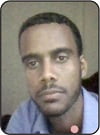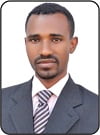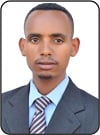Assessments of Students’ Practical Skill in Laboratory: A Case Study in Second Year Chemistry Students of Bule Hora University, Ethiopia
Abstract
ABSTRACT: Effective education should offer a balance of theoretical and practical experiences to help learners develop the competencies they need to enter professional practice and to become life-long learners throughout their careers. Laboratory activities have long had a distinctive and central role in the chemistry curriculum; and chemistry educators have suggested that many benefits accrue from engaging students in chemistry laboratory activities. The general objective of the study is to assess the practical skills of chemistry students at the BHU (Bule Hora University) in Southern Ethiopia. BHU is the newly emerged university in Ethiopia. The university is try to apply student centered approach to bring problem of surface learning in to an end and introduce deep learning, which make students critical thinker or imaginative. As a result, the university teacher educators incorporate the practical session to make learner knowledgeable, skill full, and bring attitudinal change. The data of this research was collected through questioner, focus group discussion, interview, and observation. Several problems in chemistry practical activities were identified, such as lack of confidence; shortage of time; and lack of background practical exposure, particularly on chemistry lab, lack of laboratory equipment and chemicals, lack of interest, fear of chemical toxicity, and lack of experimental freedom for independent work. In general, from the tremendous benefit of practical activities in chemistry, the authors suggested that, for example, using simulation and virtual experiments; and encouraging students to show their innate talents and make students familiar with the basic educational tool/technology.
KEY WORDS: Effective Education; Chemistry Practical Activity; Students and Teachers; Lack of Confidence; Using Simulation.



About the Authors: Shemsu Ligani is a Lecturer at the Department of Chemistry, Faculty of Natural and Computational Sciences BHU (Bule Hora University), Bule Hora, Ethiopia. Baressa Anbessa and Bula Kere are the Lecturers at the Department of Biology, Faculty of Natural and Computational Sciences BHU, Bule Hora, Ethiopia. Corresponding author is: liganishemsu@gmail.com
How to cite this article? Ligani, Shemsu, Baressa Anbessa & Bula Kere. (2016). “Assessments of Students’ Practical Skill in Laboratory: A Case Study in Second Year Chemistry Students of Bule Hora University, Ethiopia” in EDUCARE: International Journal for Educational Studies, Vol.9(1), August, pp.49-58. Bandung, Indonesia: Minda Masagi Press owned by ASPENSI, ISSN 1979-7877.
Chronicle of the article: Accepted (June 22, 2016); Revised (July 15, 2016); and Published (August 30, 2016).
Keywords
Full Text:
PDFReferences
Asefa, Mekonen. (2008). “Imaginative, Innovative, and Creative Curriculum (IICC)” in Ethiopian Journal of Education & Scence, Vol.3, No.2, pp.107-119.
Berg, C. Anders R. et al. (2003). “Benefiting from an Open-Ended Experiment? A Comparison of Attitudes to, and Outcomes of, an Expository versus an Open-Inquiry version of the Same Experiment” in International Journal of Science Education, Vol.25, No.3, pp.351-372. Available online also at: https://www.isv.liu.se/fontd/filarkiv_publikationer/1.155200/Katalas2003.pdf [accessed in Bule Hora, Ethiopia: October 9, 2015].
Burchi, Francesco. (2006). “Identifying the Role of Education in Socio-Economic Development”. Paper presented in an International Conference on Human and Economic Resources, Izmir. Available online also at: http://www.die-gdi.de/uploads/media/Burchi_Intern.Conf.pdf [accessed in Bule Hora, Ethiopia: October 9, 2015].
Burkhardt, H. & A.H. Schoenfeld. (2003). “Improving Educational Research: Toward a More Useful, More Influential, and Better-Funded Enterprise” in Educational Researcher, 32(9), pp.3-14.
Carnduff, J. & N. Reid. (2003). Enhancing Undergraduate Chemistry Laboratories, Pre-Laboratory, and Post-Laboratory: Exercises, Examples, and Advice. London: Education Department, Royal Society of Chemistry, Burlington House, Piccadilly.
Drury, C.G. (1992). “Methods for Direct Observation of Performance” in J.R. Wilson & E.N. Corlett [eds]. Evaluation of Human Work. London: Taylor and Francis.
Farrell, Stephanie & Robert P. Hesketh. (2000). “An Inductive Approach to Teaching Heat and Mass Transfer” in Proceedings of the 2000 American Society for Engineering Education Annual Conference & Exposition. Washington, D.C.: National Academy of Sciences.
Garnett, P.J., P.J. Garnett & M.W. Hackling. (1995). “Refocusing the Chemistry Lab: A Case for Laboratory-Based Investigations” in Australian Science Teachers Journal, 41(2), pp.26-32.
Hanif, M. et al. (2009). “The Perceptions, Views, and Opinions of University Students about Physics Learning during Undergraduate Laboratory Work” in European Journal of Physics, 30, pp.85-96.
Harkin, Joe, Ros Clow & Yvonne Hillier. (2003). Recollected in Tranquillity? FE Teachers’ Perceptions of Their Initial Teacher Training. London: Learning and Skills Development Agency. Available online also at: https://core.ac.uk/download/pdf/4159736.pdf [accessed in Bule Hora, Ethiopia: November 10, 2015].
Hofstein, A. & V.N. Lunetta. (2004). “The Role of the Laboratory in Science Teaching: Foundation for the 21st Century” in Science Education, 88, pp.28-54.
Hofstein, A. & V.N. Lunetta. (1982). “The Laboratory in Science Education: Neglected Aspects of Research” in Review of Educational Research, 52, pp.201-217.
Hummes, Jakob, Arnd Kohrs & Bernard Merialdo. (2010). “Questionnaires: A Framework Using Mobile Code for Component-Based Tele-Exams”. Available online at: http://citeseerx.ist.psu.edu/viewdoc/download?doi=10.1.1.52.163&rep=rep1&type=pdf [accessed in Bule Hora, Ethiopia: November 10, 2015].
Interview with Respondent A, a student of Chemistry Department at the BHU (Bule Hora University) in Southern Ethiopia, on 2 October 2015.
Interview with Respondent B, a student of Chemistry Department at the BHU (Bule Hora University) in Southern Ethiopia, on 5 October 2015.
Interview with Respondent C, a student of Chemistry Department at the BHU (Bule Hora University) in Southern Ethiopia, on 9 October 2015.
Interview with Respondent D, a student of Chemistry Department at the BHU (Bule Hora University) in Southern Ethiopia, on 13 October 2015.
Interview with Respondent E, a student of Chemistry Department at the BHU (Bule Hora University) in Southern Ethiopia, on 17 October 2015.
Interview with Respondent F, a student of Chemistry Department at the BHU (Bule Hora University) in Southern Ethiopia, on 20 October 2015.
Interview with Respondent G, a student of Chemistry Department at the BHU (Bule Hora University) in Southern Ethiopia, on 24 October 2015.
Interview with Respondent H, a student of Chemistry Department at the BHU (Bule Hora University) in Southern Ethiopia, on 27 October 2015.
Interview with Respondent I, a student of Chemistry Department at the BHU (Bule Hora University) in Southern Ethiopia, on 30 October 2015.
Interview with Respondent J, a student of Chemistry Department at the BHU (Bule Hora University) in Southern Ethiopia, on 3 November 2015.
Interview with Respondent K, a teacher of Chemistry Department at the BHU (Bule Hora University) in Southern Ethiopia, on 7 November 2015.
Interview with Respondent L, a teacher of Chemistry Department at the BHU (Bule Hora University) in Southern Ethiopia, on 10 November 2015.
Interview with Respondent M, a teacher of Chemistry Department at the BHU (Bule Hora University) in Southern Ethiopia, on 13 November 2015.
Kolb, D. (1984). Experiential Learning. Englewood Cliffs, NJ: Prentice-Hall.
Lanzi, Diego. (2004). “Capabilities, Human Capital, and Education”. Paper presented at the 4th International Conference on the Capability Approach: Enhancing Human Security, University of Pavia, Italy, on 5-7 September.
Lunetta, V.N. (1998). “The School Science Laboratory: Historical Perspectives and Centres for Contemporary Teaching” in P. Fensham [ed]. Developments and Dilemmas in Science Eeducation. London: Falmer Press, pp.169-188.
Lunetta, V.N., A. Hofstein & M.P. Clough. (2007). “Teaching and Learning in the School Science Laboratory: An Analysis of Research, Theory, and Practice” in S.K. Abell & N.G. Lederman [eds]. Handbook of Research on Science Education. Mahwah, NJ: Lawrence Erlbaum Associates, pp.393-431.
McKelvy, G.M. (2000). “Preparing for the Chemistry Laboratory: An Internet Presentation and Assessment Tool” in University Chemistry Education, 4, pp.46-49.
Millar, R. (2004). “The Role of Practical Work in the Teaching and Learning of Science”. Paper prepared for the Committee of High School Science Laboratories: Role and Vision, National Academy of Sciences, Washington, D.C., and then in R.R. Schmeck [ed]. Strategies and Learning Styles. New York: Plenum.
Nicholls, B.S. (1999). “Pre-Laboratory Support Using Dedicated Software” in University Chemistry Education, 3, pp.22-27.
Offei-Koranteng, K.B. (2013). “Improving Senior High School Students’ Performance in Organic Chemistry Using Laboratory Activity Based Method in Ledzokuku Krowor Minicipal Assemly, Ghana”. Unpublished M.Ed. Thesis. Winneba: Winneba University of Education.
Passarelli, Angela M. & David A. Kolb. (2012). “Using Experiential Learning Theory to Promote Student Learning and Development in Programs of Education Abroad”. Available online at: http://learningfromexperience.com/media/2012/02/using-experiential-learning-theory [accessed in Bule Hora, Ethiopia: October 9, 2015].
Reid, N. & I. Shah. (2007). “The Role of Laboratory Work in University Chemistry” in Chemistry Education Research and Practice, 8(2), pp.172-185.
Tobin, K.G. (1990). “Research on Science Laboratory Activities in Pursuit of Better Questions and Answers to Improve Learning” in School Science and Mathematics, 90, pp.403-418.
Tomlinson, J., P. O’Brien & C.J. Garratt. (2000). “Computer Software to Prepare Students for Laboratory Work” in Journal of Science Education, 1, pp.100-107.
Wood, R. (1987). “Aspects of the Competence-Performance Distinction: Educational, Psychological, and Measurement Issues” in Journal of Curriculum Studies, 19, pp.409-424.
EDUCARE: International Journal for Educational Studies. Ciptaan disebarluaskan di bawah Lisensi Creative Commons Atribusi-BerbagiSerupa 4.0 Internasional
